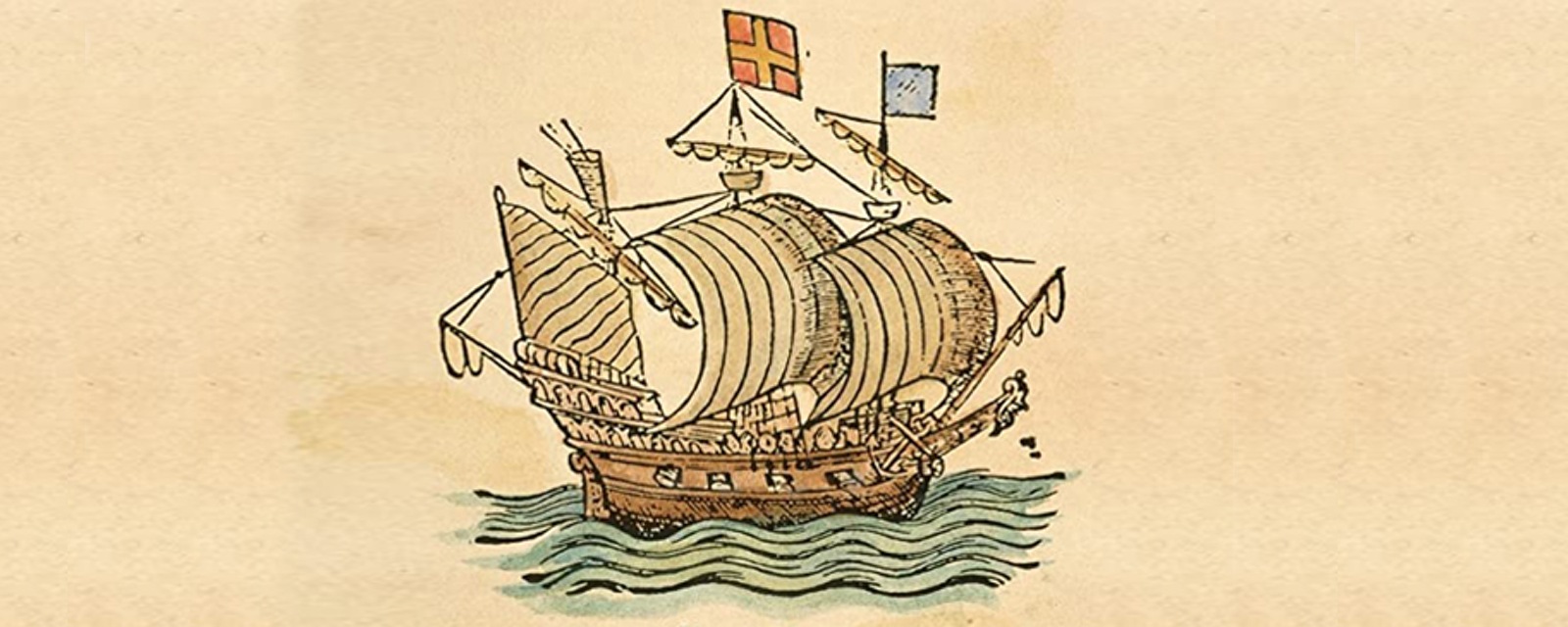The Virginia Company of London
The Virginia Company was in operation for less than 20 years but was an important step in the growth of the British Empire, and it set the foundation for the English colonisation of the American mainland.

This illustration is from Nova Britannia, a Virginia Company promotion pamphlet written by Robert Johnson and published in London in 1609. Johnson described the colony as a place of peace and posterity, where the native people were happy to receive English settlers.
The first successful English colony in North America was funded and organised by a group of London merchants and investors, with a charter from King James I. The Virginia Company was in operation for less than 20 years but was an important step in the growth of the British Empire, and it set the foundation for the English colonisation of the American mainland.
In the 16th century England remained a marginal power on the edge of Europe. The Spanish and Portuguese were creating colonies in the New World of the Americas, bringing valuable silver, gold, sugar and hardwood across the Atlantic. The English initially had little ambition or means to create their own overseas settlements but found a lucrative source of income in simply plundering Spanish and Portuguese ships and colonies. A share of the spoils was given to Queen Elizabeth, who legitimised this ‘privateering’ by providing a licence, known as a Letter of Marque.
Disruption to supplies of Asian products such as spices and silks, as well as high prices, encouraged London merchants to seek their own routes to the Far East. They formed companies to co-operate and protect their business, notably the Muscovy Company, which traded as far as Persia via Russia, the Levant Company, trading via the Mediterranean, and later the East India Company. Each of these was granted a charter by the monarchs, which provided them with a monopoly on certain areas of trade. To obtain a charter it was necessary to have a close contact with the Royal Court, so highly-placed men, loyal to the monarchs, were recruited for that purpose. Out of these trading companies emerged the Virginia Company, which ultimately led to the first successful English colony in North America.
Many of the early colonies in the New World were private enterprises, founded by aristocrats and merchants, and created to provide profits for investors. Some were created as a home for religious non-conformists. As was the case with English privateering in the 16th century, colonisation in the New World in the first decades of the next century was made legitimate by the support, but never direct involvement, of the monarchy. The Stuart kings, who were always in debt, could gain financial benefits of colonisation without investing in risky ventures. Keeping colonisation at arms-length from the King also avoided conflict with other nations who made claim to the same parts of the world. For the monarchs these charters were instruments for producing income for themselves, using royal prerogative to offer aristocrats and gentlemen merchants pieces of the world in which no other Europeans were interested or had claimed. It was also a right that could be revoked and resold, or perhaps even sold more than once to different people due to the vagueness of geography.
Spanish explorers searching for gold were the first Europeans to arrive in what later became the English colonies of North America. Queen Elizabeth had provided one of her courtiers, Walter Raleigh, with a charter granting him the right to discover and settle in new lands in return for a fifth of all gold and silver he “shall be there gotten and obtained”. Raleigh funded two unsuccessful attempts to settle colonies on the North American mainland at what was named Virginia.
New plans emerged from two groups of investors, or ‘adventurers’, one from London and the other from Plymouth, Bristol and Exeter, to form new bases in North America. There were various ambitions, including creating new markets for English goods, finding gold, protecting English shipping from the Spanish, converting the natives to Protestantism before the Spanish could convert them to Catholicism, and finding a new home for England’s excess population. Some merchant investors, such as Sir Thomas Smythe hoped it would lead to a westward trade route to China.
Smythe was the son-in-law of Sir Andrew Judde, a former Lord Mayor of London and founding member of England’s first joint-stock company, the Muscovy Company. Smythe was a member of both the City of London’s Skinners and Haberdashers livery companies and succeeded his father as Collector of Customs for the Port of London. He sat as an MP, a City alderman, and served as Sheriff of London. He was a member of both the Merchant Adventurers and Levant Company, making him one of the most important London merchants of the late 16th century. Smythe was appointed as the first Governor of the East India Company, which received its charter from Elizabeth I in December 1600, a position he held until 1621 except for two years. He was knighted in 1603 by James I, who appointed him as Ambassador to Russia.


